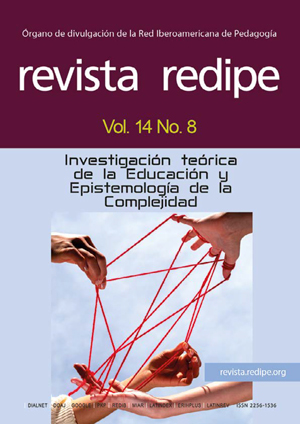The self-regulated learning of university students in a chilean pedagogy program
Main Article Content
Keywords
Self-regulation, Self-efficacy, Autonomous learning, Higher education, Academic performance, SCT, Chile
Abstract
Self-regulated learning is a key competency for academic success in higher education and is especially relevant in initial teacher education. This study aimed to analyze the relationship between self-efficacy for study selfregulation and academic performance among students in an English Teaching program at a Chilean state university, within the framework of the Transferable Credits System (SCT). A quantitative, quasi-experimental design was used with a convenience sample of 103 students. Self-regulation self-efficacy was assessed using the CAPADE questionnaire. Results showed low to moderate correlations between self-efficacy dimensions and academic performance, with goal setting being the most relevant positive association (r=0.33). Findings suggest that selfregulation self-efficacy influences academic achievement, though its impact is limited and mediated by additional factors. It is concluded that reinforcing self-regulation strategies, alongside institutional support, may enhance academic performance in future teachers.
References
Bandura, A. (1991). Social cognitive theory of self-regulation. Organizational Behavior and Human Decision, 50(2). https:// doi.org/https://doi.org/10.1016/0749- 5978(91)90022-L
Bandura, A. (1997). Self-efficiency: The excercise of control. New York: W.H.Freeman and Company.
Barreto, F. y Álvarez. (2020). Estrategias de autorregulación del aprendizaje y rendimiento académico en estudiantes de bachillerato. Revista de estudios e investigación en psicología y educación, 7(2), 184-193.
Boyle, E. D. (2003). Learning styles and academic outcome: The validity and utility of Vermunt´s Inventory of Learning Styles in a Britich higher education setting. British Journal of Educational Psychology, 73(2), 267-290.
Candy, P. C. (1989). Constructivism and the study of self-direction in adult learning. Studies in the Education of Adults, 21(2), 95-116.
Cárcel, F. (2016). Desarrollo de habilidades mediante el aprendiazaje autónomo. 3C Empresa, 5(3), 52-60. http://hdl.handle. net/10251/80098
Cerda, C. (2012). Apreendizaje autodirigido y aprendizaje auorregulado: Dos conceptos diferentes. Revista Médica de Chile, 140(11), 1504- 1505. https://doi.org/https://doi.org/10.4067/S0034- 98872012001100020
Consejo de Rectores, Chile. (2013). Manual para la implementación del sistema de créditos académicos transferibles. Santiago. www. consejoderectores.cl
Cunill, M. (2021). Una Aproximacicón. Educación Médica Superior, 35(1). https://ems.sld.cu/ index.php/ems/article/view/2498/1219
Fuentes, S. (2023). Autorregulación del Aprendizaje: Desafío para el Aprendizaje Universitario Autónomo. Revista Latinoamericana de Educación Inclusiva, 17(1), 21-39. https://doi.org/https://doi. org/10.4067/s0718-73782023000100021
Gaeta y Carvazos. (2016). Relación entre tiempos de estudio, autorregulación del aprendizaje y desempeño académico en estudiantes universitarios. CPU-e Revista de Investigación Educativa, 23, 142-166. https://doi.org/https://doi.org/10.25009/ cpue.v0i23.2166
Hair, J. B. (2010). Multivariate Data Analysis (Sexta ed.). Pearson Education Inc. NJ.
Hernández, R., y Mendoza, C. (2018). Metodología de la investigación: Las rutas cuantitativa, cualitativa y mixta (First edition). McGraw-Hill Education.
Lamas, H. (2008). Aprendizaje autorregulado, motivación y rendimiento académico. Liberabit, 14(14), 15-20. http://www.scielo. org.pe/pdf/liber/v14n14/a03v14n14.pdf
López y Curbelo. (2021). Una Aproximación a la autorregulación del aprendizaje desde la ecaluación formativa en la educación médica. Revista Cubana de Educación Médica, 35, 1-19.



